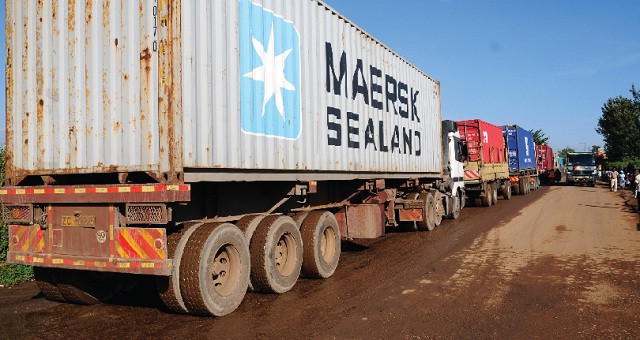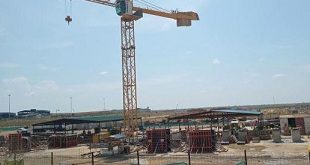
Beyond the clapping and ululation in Kigali, can the ACFTA be implemented?
Kampala, Uganda | RONALD MUSOKE | After close to 30 years of negotiations, 44 African states finally agreed to establish a single market to ease buying and selling of African-made goods and services. That leaves out 11 countries; including the two biggest economies – Nigeria and South Africa. But that has not stopped the plaudits from flowing.
Michael Kottoh, the Chief Strategist at the AfroChampions Initiative, a continental platform whose membership comprises CEOs of Africa’s leading corporations told the Chinese broadcaster, CGTN, on March 21 that the fact that African countries have been able to move ahead despite all the growing protectionism and dissatisfaction around the world is a big statement.
“Despite the pessimism around the world, the signing ceremony is something to be optimistic about,” he said.
He said in the next 180 days, his organization will mobilize its members to make sure that the private sector across the continent is solidly behind the process.
“Civil society will also be brought on board since the ACFTA is for average Africans,” he said.
Mention of the 180 days from the date of signing the Kigali Agreement to its ratification in July is critical as, observers say, this is the time for the real work on the ACFTA to start.
Over this period, Faki Mahammat, the Chairperson of the African Union Commission, will cautiously wait to receive news from Abuja and Pretoria to see if Nigeria and South Africa get on board.
Excitement about the ACFTA has already been dampened by the cautious approach from Africa’s two biggest economies.
Nigerian president, Muhammadu Buhari, skipped the Kigali event altogether while South Africa’s new president, Cyril Ramaphosa, attended but only signed the declaration that spells out the establishment of the ACFTA. Buhari said Nigeria needs more time for consultations.
Richard Newfarmer, the International Growth Centre’s (IGC) country director for Uganda and Rwanda told The Independent that the absence of Nigeria and South Africa from the ACFTA could reduce its ultimate potential, and undermine their case for leadership in the hemisphere.
But Sam Ohuabunwa, the former president of the Nigeria Economic Summit Group told CGTN, on March 21, that following the criticisms the Nigerian government got at home following the signing of the World Trade Organization (WTO) agreement, Buhari did not want to repeat mistakes of his predecessors.
Ohuabunwa said these agreements have implications on the local economy and governments that sign onto something they do not understand will be criticized at home.
But Dr. Francis Mangeni, the director of Trade, Customs and Monetary Affairs at the Common Market for Eastern and Southern Africa (COMESA) told The Independent that Nigeria and South Africa did not say they would never sign the ACFTA Agreement.
“Once the private sector is properly educated about the safeguards and flexibilities in the ACFTA Agreement, to ensure their survival, Nigeria is likely to come forward and join,” he said, “South Africa is only waiting for legal scrubbing of the Annexes on trade in goods, which can be accomplished in a week’s meeting.”
Mangeni called the signing of the ACFTA a “big milestone for Africa.”
“It is equivalent to the formation of the Organization of African Unity on 25 May 1963 which provided the institutional framework for the decolonization struggle which was finally accomplished in 1990 with the independence of Namibia,” he told The Independent in an email on March 25.
“It is also equivalent to the formation of the African Union in 2000, which has since seen a much stronger, united, organized, articulate, forward-looking and activist Africa on the international stage.”
“Travelling, trading and investing in Africa are a nightmare for Africans,” Mangeni told The Independent.
Newfarmer also told The Independent in an email that ACFTA marks an important step in the continued progress of African integration.
“ACFTA is a stellar example of impetus toward greater integration in the South at a time of greater dis-integration in the northern rich countries,” he told The Independent.
Potential versus reality
However, Newfarmer told The Independent that the ACFTA might soon discover that tariff and product specific rules of origin negotiations can take a very long time, just like they have done in the Tripartite Free Trade Area (TFTA of COMESA, EAC and SADC).
 The Independent Uganda: You get the Truth we Pay the Price
The Independent Uganda: You get the Truth we Pay the Price



